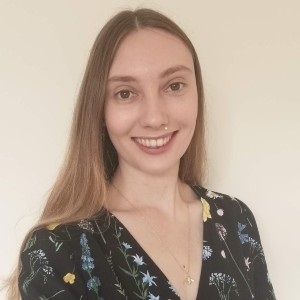Dr Abbie Bradshaw
BA (Oxon), DPhil (Oxon)
Fellow (B), Postgraduate Mentor

College Roles
- Amy Whiteley Research Fellow (B)
- Postgraduate Mentor
University Roles
- Leverhulme Trust Early Career Fellow
Contact
Telephone: 01223 335728

Biography
Dr Abbie Bradshaw studied Experimental Psychology at the University of Oxford, where she was awarded the British Psychological Society Undergraduate award and the George Humphrey prize for
highest degree grade in the 2016 Honour School of Experimental Psychology. She remained at the University of Oxford to complete her PhD with Prof Dorothy Bishop, investigating hemispheric
specialisation for speech and language in the brain. Following this, Dr Bradshaw was appointed as a postdoctoral researcher at University College London, working with Prof. Carolyn McGettigan in the
department of Speech, Hearing and Phonetic Sciences. Dr Bradshaw now holds a Leverhulme Trust Early Career Fellowship at the MRC Cognition and Brain Sciences Unit at the University of Cambridge,
working with Dr Matt Davis. She is also an Isaac Newton Fellow, and holds a Sciences Research Fellowship at Newnham.
Research Interests
Dr Abbie Bradshaw’s research is interested in the interactions between sensory (perception) and motor (production) processes for speech, at the behavioural and the brain level. Her current research project
investigates this in the context of predictive processes for speech, in a project entitled “Testing prediction as a unified framework for speech production and perception”. This project will investigate if the brain
uses a shared predictive mechanism to process both other voices during perception and the self-voice during production. This will involve the use of cutting-edge brain imaging analysis methods with
functional magnetic resonance imaging, in order to decode the content of brain responses during speech.This will provide insights into the fundamental relationship between perception and action in the brain,
which have traditionally been viewed as entirely separate processes.


